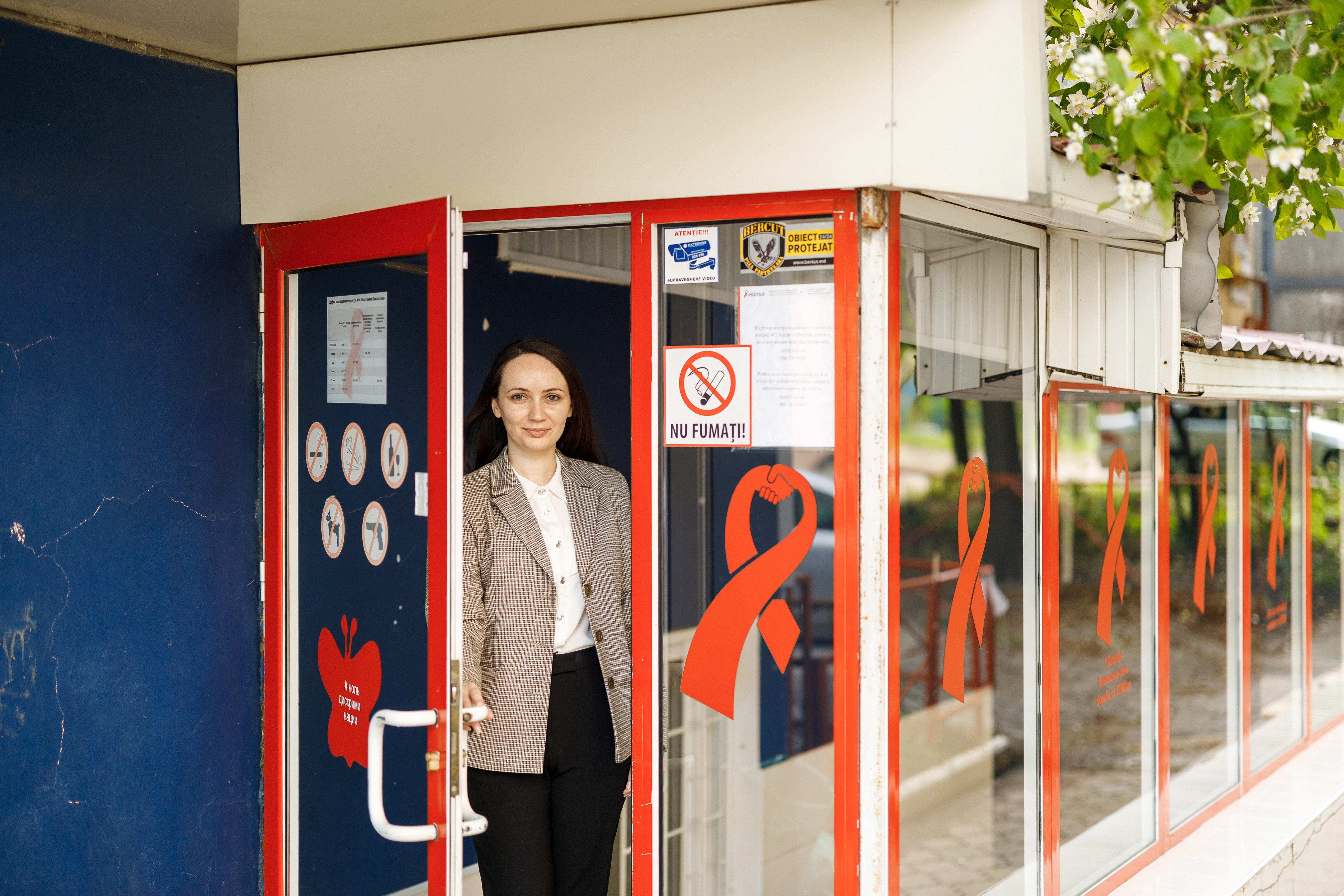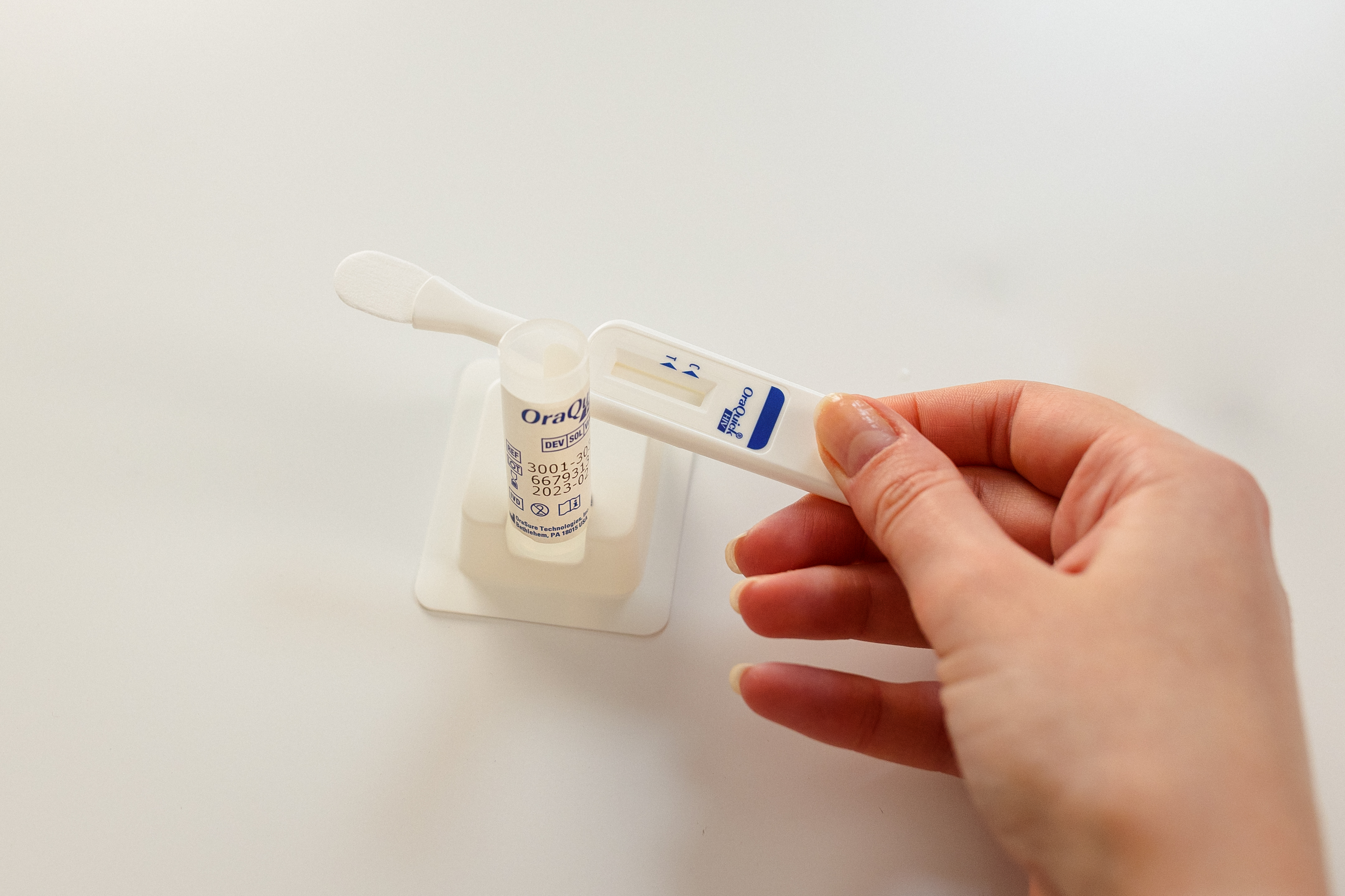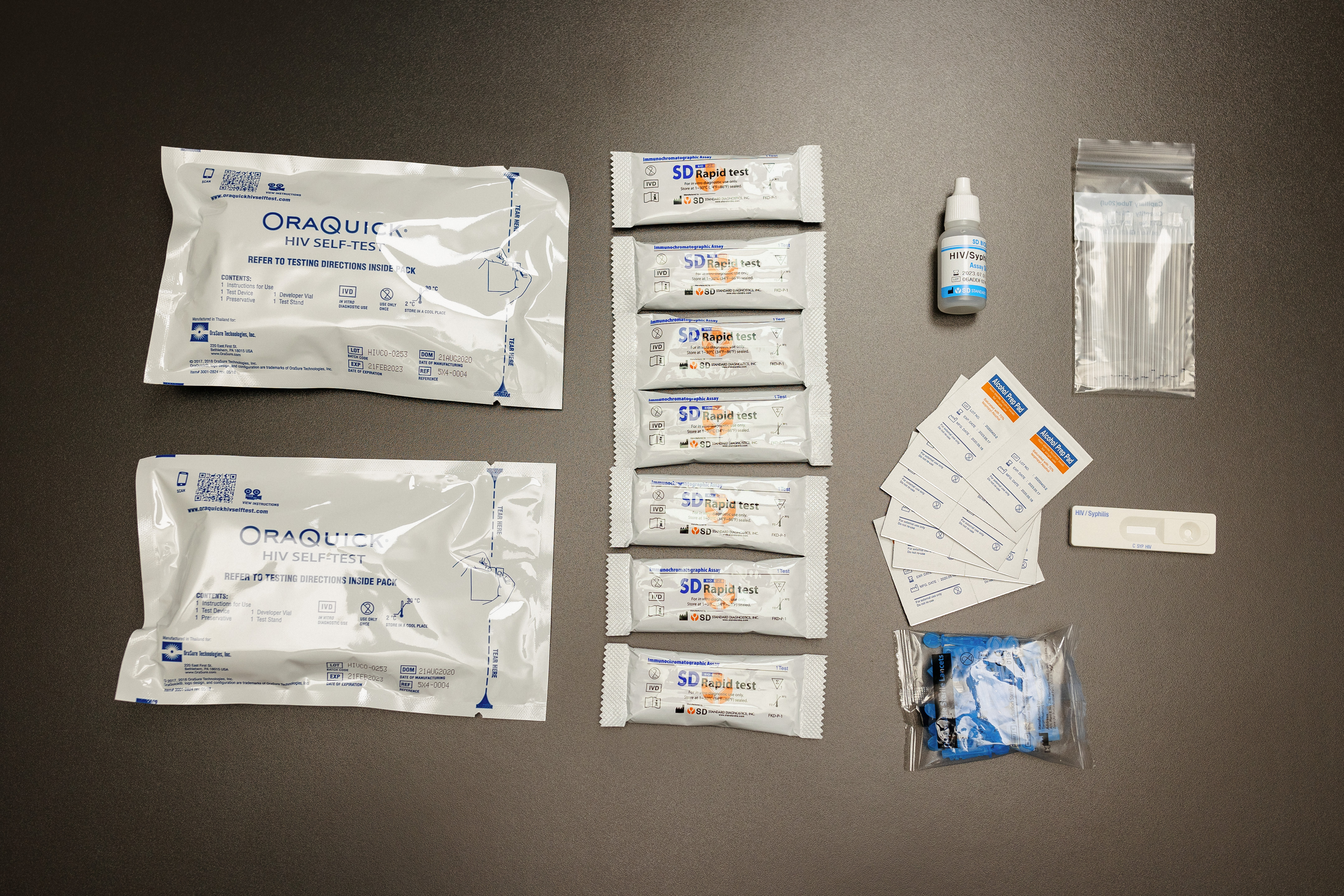Sustainable procurement in health sector would bring more predictability, reliance and savings that can be redirected to better healthcare services
Moldova strives to make health procurement more sustainable
June 29, 2021
Sorina Vesiolii, health expert at NGO “Positive Initiative”, a leading patient organization that advocates for a decent and healthy life for persons living with HIV. Photo: Ion Buga
The current COVID-19 pandemic puts an unprecedented stress on the provision of healthcare services for the most vulnerable groups of people. In Moldova, the demand for medical care exceeds the available resources, urging public authorities to adapt to the medical landscape. Chronic and non-urgent care in hospitals has been restricted, when cases of coronavirus surged, to increase the capacity of emergency care and recovery post-COVID.
But Moldova managed to avoid stockouts of HIV medicines. Neither beneficiaries nor authorities reported disruptions of HIV treatment or prevention services. Thanks to a good mobilization and coordinated action between medical institutions, civil society and mobile clinics managed by NGOs, during the lockdown and further restrictions periods, people on antiretroviral treatment (ART) were ensured with life-saving medicines for a period of half a year. This reduced the need for travel to ART centers and diminished the potential exposure.
“So, supplying ART for six months is an effective practice born in Moldova even before the pandemic, proven to be reliable especially during that crisis period,” notes Sorina Vesiolii, health expert at NGO “Positive Initiative”, a leading patient organization that advocates for a decent and healthy life for persons living with HIV.
Better planning of quantities, more predictability, and less shortages
In Moldova, ART is covered by the state, under the HIV/AIDS/STI Prevention and Control Programme. Approx. 19 million MDL, which is 7.5% from the 253 million MDL budget allocated annually for all national and special health programs, represents the amount requested to cover antiretroviral medicines. For an accessible, affordable, and cost-efficient treatment, careful consideration of quantities and needs before placing an order is demanded, including due to small size of the local market and the increasing competition on international markets for the available medicines.
Therefore, it is essential that procurement of ART is predictable and sustainable, which means that life-saving medicines are available when needed, in full quantity. For that, the national authorities need to know what quantities are required, when and to whom these should be provided and to predict all these patterns. “Both insufficient and excessive stocks are not desirable, as this implies, on the one hand, patients under risk of not receiving the needed treatment, and, on the other hand, inefficient use of resources and medicines that might expire,” notes Sorina Vesiolii, health expert at “Positive Initiative”.
Along with planning of needs, reasonable consumption of health commodities is essential: “Enormous amounts of products are consumed daily, such as alcohol swabs, gloves, medical caps, syringes, all these generating a huge amount of waste, that subsequently affects the environment and contribute to climate change, biodiversity loss, air and water pollution. One of the main goals in the procurement of health commodities should be to produce less waste and to use fewer natural resources, which will contribute to diminishing the negative impact on the environment and human health,” explains Sorina Vesiolii.
During 2018-2021, NGO “Positive Initiative”, in the framework of the UNDP regional project “Sustainable Health in Procurement (ShiPP)” funded by the Swedish International Development Cooperation Agency (Sida), has conducted an analysis on sustainable procurement practices in Moldova that concludes that the implementation of sustainability criteria shall be approached with due complexity, implying changes in legislation, training of contracting authorities and implementation of a monitoring system.
"We are confident that the implementation of the sustainability criteria in the medical field will increase savings to the state budget, which can later be redirected to other vital needs, in order to increase the quality of life of the population,” concludes Sorina Vesiolii from NGO “Positive Initiative”.
The report recommends the development of an electronic stock management system, which will allow the monitoring of all health commodities that are available in the medical institutions across the country.
Procurement cycle in health sector, faster and more efficient
Following the recommendation of the report, the centralized health procurement regulations were optimized in September 2020, to streamline the procurement cycle of health commodities. In practical terms, this means that the necessary quantities will be purchased in due time, it will be possible to monitor the quantities in medical institutions and to adjust the planning, if needed.
Approx. 14,600 people live with HIV/AIDS in the Republic of Moldova, as per 2020 data. The 2020 Integrated Bio-Behavioural Surveillance reconfirms that the infection is concentrated in several key populations: persons who inject drugs (with a HIV prevalence of 11.4%), sex workers (2.7%), and men having sex with men (11.4%).
Out of them, 6810 are under ART. Modern pharmaceutical technologies allow, thanks to the regular intake of one tablet a day, the body to function normally and viral load to be suppressed, so that it is not further spread. To note, less waste is produced by optimizing the treatment schedule to one tablet per day instead of 2-3. The treatment schedule is optimized annually by the National Programme for the Prevention and Control of HIV/AIDS and Sexually-Transmitted Infections in accordance with WHO recommendations.

 Locations
Locations








